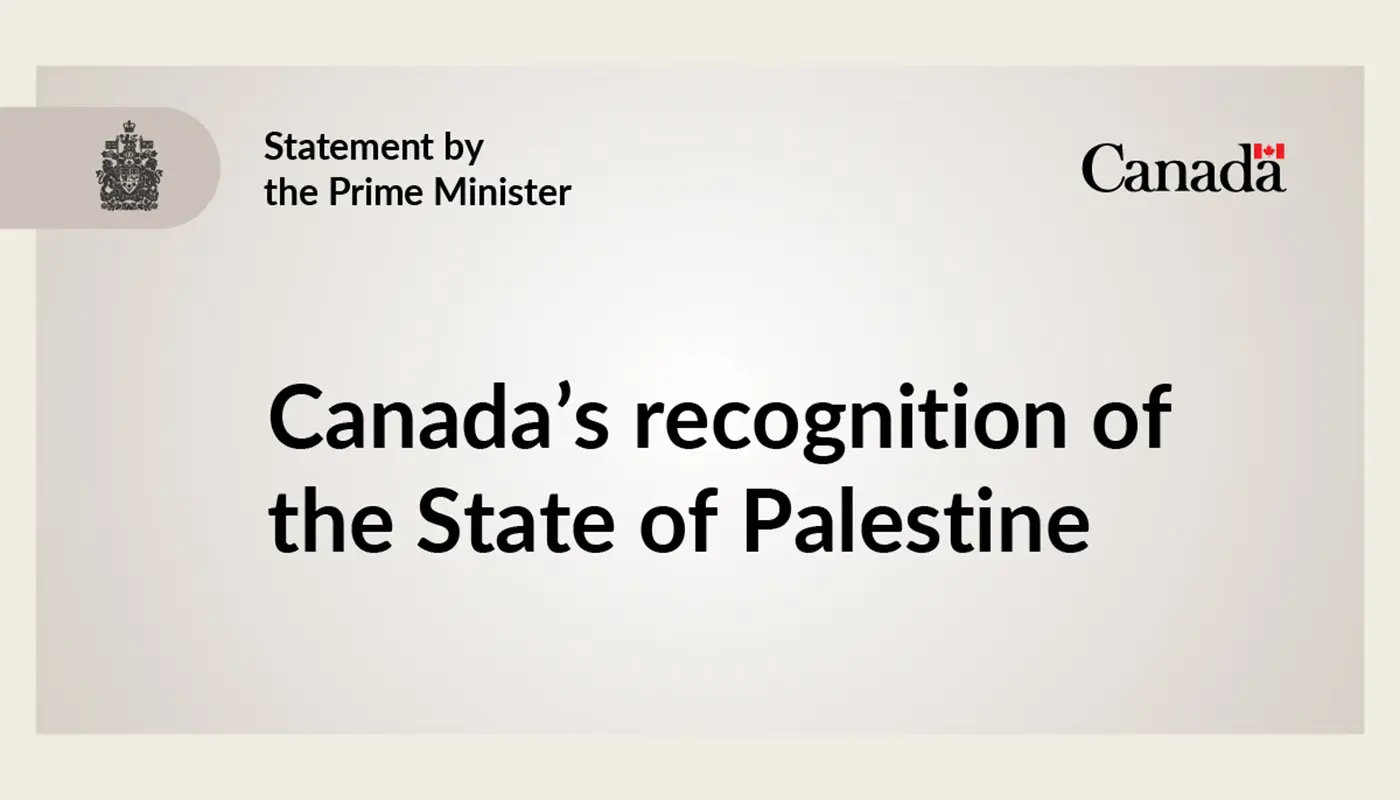Ottawa, Canada – In a landmark move, Canada formally recognised the State of Palestine on September 21, 2025, announcing what Prime Minister Mark Carney called a renewed commitment to a two-state solution in the Middle East.
This marks a significant departure from Canada’s long-standing diplomacy, aligning it with over 140 United Nations member states that already recognise Palestinian statehood.
Carney said in a public statement that Canada’s recognition is “in this context … offers our partnership in building the promise of a peaceful future for both the State of Palestine and the State of Israel.” He stressed that this decision does not legitimise terrorism nor reward it.
The recognition comes with conditions. Canada said the Palestinian Authority has committed to reforms including governance reform, demilitarising the prospective Palestinian state, and holding general elections in 2026 from which Hamas is to be excluded.
Context & Reactions
This action is part of a coordinated diplomatic push with the United Kingdom and Australia to breathe new life into the two-state formula, amid intensifying international scrutiny over Israel’s settlement expansion in the West Bank, the E1 settlement plan, and the wartime humanitarian crisis in Gaza.
Israel sharply condemned the decision. Israeli Prime Minister Benjamin Netanyahu called the recognition a “huge reward to terrorism” and reiterated that a Palestinian state “will not be established west of the Jordan River.”
On the Palestinian side, Foreign Minister Varsen Aghabekian Shahin described the recognitions by Canada, Australia, and the UK as irreversible steps toward sovereignty. He said while the move alone will not end violence, it advances Palestinian aspirations for statehood.
Analysis & Implications
Canada’s recognition carries mostly symbolic weight, but may influence diplomatic dynamics. It underscores growing frustration among Western and Commonwealth nations over stalled peace efforts, repeated clashes, and mounting civilian casualties in Gaza.
Some analysts view the move as Canada trying to recalibrate its foreign policy, balancing its long-standing support for Israel with increasing international demand for Palestinian rights and accountability.
The decision could alter Canada’s relations with both the Palestinian Authority and Israel. It is plausible that Canadian aid, diplomatic engagement, and humanitarian support will be adjusted in line with Canada’s stated conditions.
The timing, just before the United Nations General Assembly, suggests an effort to influence outcomes there. Domestically, the move may carry political risks and rewards, depending on public opinion and official pushback from Israeli allies.
Sources: Reuters, Associated Press, Al Jazeera, Government of Canada statement






